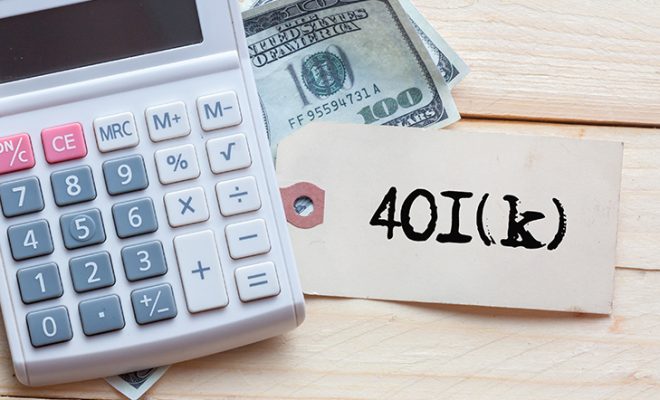Why Are Retirement Benefits Important for Workers?

A job helps you gain financial independence and can help you build your life as you see fit. Your education and hard work prepares you for a job, which in turn helps you earn a steady income. However, apart from your income, it is also essential to consider factors like your retirement benefits. Retirement benefits help you prepare for the future. And while it may seem that you have plenty of time to worry about an event so far away in the future, it is advised to not ignore your retirement needs and instead start planning from a young age. All employers may not offer retirement benefits. However, many companies offer them to attract more employees and keep them for a long time. Irrespective of whether or not you are offered these benefits, it is essential to know about them so you can strike a better deal during the recruitment process and understand why they are crucial for your future financial security. Consider consulting with a professional financial advisor who can advise you on various retirement plans and their benefits that a person should look for at the time of seeking employment.
Below are some things to know about the importance and relevance of good retirement plans for workers.
Importance of having a retirement plan for workers
1. They can help increase your savings:
Retirement plans allow you to save for your future goals. While the primary goal of a retirement plan is to prepare you for your golden years, you can rely on this money for several other needs as well. For instance, even though you will incur a 10% penalty along with taxes, you can still use your 401k funds and Individual Retirement Account (IRA) money for any emergencies. This move is not recommended, but still serves as a financial cushion in your hour of need.
2. They contribute towards long-term financial growth:
Retirement plan benefits can offer you steady long-term growth. If you start saving your money from an early age, you get plenty of time to build your retirement nest egg. The burden of saving money is lowered, and you get to save systematically and slowly. Over the term, you get to tap into changing market opportunities, balance out your investment cost, earn from the power of compounding, and ultimately enjoy a high corpus on maturity.
3. They can provide tax benefits:
Tax-advantaged accounts like the 401k and the IRA enable tax savings that further contribute to your financial growth. You can choose between the traditional and Roth accounts. Either way, you get to save on tax in the present or when you withdraw your savings in retirement.
4. They prove you with peace of mind:
The understanding that your money is being saved and you have something to depend on in your hour of need offers you confidence and peace of mind. The happier and stress-free you are, the more you are able to focus on bettering yourself professionally, chasing newer goals, climbing the career ladder, and earning more money.
5. They can serve as a cushion against inflation:
Inflation can sometimes be a deterrent on your way to financial success. Retirement plans ensure that your savings do not sit idle and instead grow with time. This allows you to save in tandem with the rising prices, so your money does not lose its value over time.
6. They provide an option to earn extra money:
Some plans, like the 401k retirement plan, offer an employer match. This means that your employer may contribute to your account over and above your contribution. If your employer is offering this option, you get the extra money that builds up your retirement corpus quickly.
Further, a good retirement plan is beneficial not only to employees but also to employers. Providing a retirement benefit plan to the workers can enhance their productivity and offer a sense of satisfaction. Financial incentives over and above income are an excellent way for organizations to retain employees and lower attrition rates. Additionally, if a company offers a qualified retirement plan and has 100 or fewer employees, it qualifies for a tax credit which lowers its taxability and helps in saving money.
Types of retirement plan benefits
It is essential to know the various types of plans that you can use to create your retirement corpus. Here are some options:
1. Qualified and non-qualified retirement plans:
A qualified retirement plan is one that offers tax benefits under the Employee Retirement Income Security Act of 1974 (ERISA) or the Internal Revenue Code Section 401(a) of the Internal Revenue Service (IRS). This allows you to save tax on your contributions or withdrawals, as in the case of the 401k or the IRA. On the other hand, a non-qualified plan is not eligible for tax benefits under ERISA. Further, the IRS regulates a qualified retirement plan, which also sets its contributions and withdrawal limits every year. A non-qualified plan is much more flexible and is managed or regulated by the organization offering it.
2. Defined benefit retirement plan and defined contribution plans:
A qualified plan can be divided into two types – a retirement-defined benefit plan and a retirement-defined contribution plan. The former is offered by an employer to the employee and guarantees an income for life post-retirement. The most common example of this is the pension plan. Irrespective of how the company performs or the profit or loss it earns, the employee is financially secure for life. In a retirement-defined benefit plan, only the employer contributes to the plan. While the employee may also contribute, the primary responsibility lies on the employer.
On the other hand, a defined contribution plan is one where both the employee and the employer contribute to a plan. The most popular example includes the 401k. In such accounts, the primary responsibility to contribute lies on the employee, while the employer may or may not match the contribution.
SPONSORED WISERADVISOR
Things to keep in mind when selecting a good retirement plan
1. Understand the type of retirement plans offered by your workplace:
When you sign the job acceptance letter, make sure you accept an offer that values your skills and aligns with your future needs. As stated at the beginning of this article, income is not the sole criterion when selecting or rejecting a job. Make sure that you check whether or not your company offers you a 401k. For nonprofits and government organizations, look for a 403(b), which is a similar account to a 401k. Next, see if your employer offers you a match. If there is no match, try to negotiate a match. If the employer is ready to offer a match, see if you can convince them to increase the percentage. There is a lot of room for negotiations in a job proposal. So, do not settle for the bare minimum.
2. Know what your retirement plan offers:
If your employer offers a retirement plan, make sure you understand its rules, investment options, loan facilities, and more. For instance, some plans may have a waiting period for the employer match. It may be months before you actually start to get the matching contributions which can stall your financial progress. Some plans may have an enrollment gap. For example, companies may accept new enrollments only once a quarter. Depending on when you join the company, this may again take months. Further, the investment options within a plan will determine your profits. Most companies offer their stocks along with other options like mutual funds, exchange-traded funds, target date stocks, bonds, certificates of deposit, etc. Go through the options and see if these options sit well in your investment portfolio. Plans like the 401k also offer the opportunity to take a loan against your funds. Make sure you understand the formalities required for this to save crucial time at a later stage.
3. Understand the outcome of the retirement plan you choose:
The retirement plans mentioned above have different uses and benefits. You must know how each of them can affect you in different situations. For example, a defined benefit plan can be claimed in a lump sum or as regular annuities in retirement. However, a defined contribution plan has no such rules. However, they may be subject to Required Minimum Distributions (RMDs) from the age of 72 or 73.
Further, a defined benefit retirement plan may have limited investment options as it is the employer who primarily has control over them. This will impact your returns. Contrarily, a defined contribution plan may offer you more control in selecting the types of investment you wish to put your money in. With these, you also get to save tax. However, with defined benefits plans, you do not have this option.
If you are choosing between qualified and non-qualified plans, your money may be exposed to the company’s creditors if you select the latter.
4. Be up to date with the retirement plan rules:
Retirement plans, especially the qualified ones, may change from time to time. The IRS updates the contribution limits for 401ks and IRAs every year. For instance, in 2021, the maximum contribution limit for a 401k was $19,500. In 2022, this was increased to $20,500. Similarly, if you withdraw your funds before the age of 59.5 years, you pay a penalty of 10%, along with the applicable tax. However, during the 2020 COVID pandemic, the Coronavirus Aid, Relief, and Economic Security (CARES) Act was introduced, which waived the 10% penalty. This was applicable on all early withdrawals from a 401k and an IRA to help people cater to their income shortfalls due to the pandemic and lockdowns. These kinds of changes or updates may be introduced from time to time. It is in your best interest to stay up to date with them all and use the provisions as and when you need them. Being up to date will also allow you to adjust your financial plan accordingly.
5. Know what happens to your retirement plan when you quit your job:
If you get a retirement plan from your employer, such as a 401k, and you decide to quit your job, you have three choices. The first is to roll over your account to an IRA, the second is to roll over your account to a new employer, and the third is to let your money be as it is. Each of these options has its pros and cons, and you must understand them well to make a choice. For example, if you roll over to an IRA, you would have better control over your money. However, the contribution limit for an IRA is a lot less than a 401k. Therefore, you will lose money in the long term as you will be saving less per annum. As of 2022, an IRA allows you to save and contribute $6,000 per annum compared to $20,500 in a 401k.
If you roll over to the new employer, you should first find out the enrollment process, employer match, and investment options offered by the new employer. This may be different from the one at your present employer. Make sure you understand these details to make an informed decision. Lastly, if you leave your money with the old employer, know that you will no longer receive the employer match since you will not be working there anymore. Additionally, you would also not receive loans against your 401k and may find it hard to manage your investments.
6. Focus on your investments outside the retirement plan too:
While good retirement plans offered by employers allow you to prepare for your retirement, it is vital to save and invest outside of your company too. You can invest in mutual funds, stocks, and more depending on your risk appetite and goals. A financial advisor can help you draft a suitably diversified portfolio. This will allow you to be more financially secure.
To conclude
Retirement plan benefits are a crucial component of saving for retirement. Therefore, staying up to date, understanding all options, and ensuring that you choose the right plan is essential. Additionally, it is also essential to understand your goals and risk appetite so that you can invest your money in the right plans.
If you find it hard to make the right choice or understand the provisions of your retirement plan, you can always consult a financial advisor. Use the free advisor match service to connect with 1-3 financial advisors based on your financial requirements. All you need to do is answer a few simple questions about yourself and the match tool will help connect you with advisors suited to meet your financial needs and goals.
For further information on the most suitable retirement benefits for your financial requirements, visit Dash Investments or email me directly at dash@dashinvestments.com.
About Dash Investments
Dash Investments is privately owned by Jonathan Dash and is an independent investment advisory firm, managing private client accounts for individuals and families across America. As a Registered Investment Advisor (RIA) firm with the SEC, they are fiduciaries who put clients’ interests ahead of everything else.
Dash Investments offers a full range of investment advisory and financial services, which are tailored to each client’s unique needs providing institutional-caliber money management services that are based upon a solid, proven research approach. In addition, each client receives comprehensive financial planning to ensure they are moving toward their financial goals.
CEO & Chief Investment Officer Jonathan Dash has been profiled by The Wall Street Journal, Barron’s, and CNBC as a leader in the investment industry with a track record of creating value for his firm’s clients.










